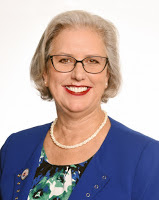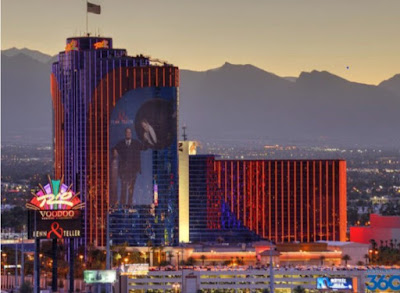What risk assessments, if any, were done by AFT?
Commissioner Stacy
White filed a lawsuit in December against numerous defendants related to All
for Transportation's $16 Billion transit tax hike charter amendment challenging
the language used in the charter amendment. It is case #18-CA-011749.
AFT, some county commissioners and others who supported the tax hike have called the lawsuit ridiculous, a political stunt and "nonsense".
AFT, some county commissioners and others who supported the tax hike have called the lawsuit ridiculous, a political stunt and "nonsense".
But their rhetoric may
be the "nonsense".
Time to step back and break things down, especially statutorily. Local media continues to selectively filter reporting about the tax hike, White's lawsuit or why it was filed.
Hillsborough County is a Charter County. Regarding a Charter County:
A Charter is a document that spells out the
powers, duties and structures of government and the rights of citizens. It is
often compared to constitutions at the local level.
The way public officials are elected, the form
of government, and the role citizens play in local government.
A local government has all powers of
self-government except those that are specifically prohibited or pre-empted by
the State.
Charters are local
governance documents not legislative or appropriations documents.
Florida statute 125 Part IV grants counties the power to be structured as a home rule charter county. FS 125.86enumerates the legislative responsibilities vested in county commissioners.
Remember AFT's transit tax hike is a charter amendment.
The state enables all local sales surtaxes. State statutes governs the local transportation sales surtax included in AFT's charter amendment.
FS 212.054 describes how such local sales surtaxes are administered and collected and states (emphasis mine):
Florida statute 125 Part IV grants counties the power to be structured as a home rule charter county. FS 125.86enumerates the legislative responsibilities vested in county commissioners.
Remember AFT's transit tax hike is a charter amendment.
The state enables all local sales surtaxes. State statutes governs the local transportation sales surtax included in AFT's charter amendment.
FS 212.054 describes how such local sales surtaxes are administered and collected and states (emphasis mine):
The surtax, if levied, shall be computed as
the applicable rate or rates authorized pursuant to s. 212.055 times the amount of taxable sales
and taxable purchases representing such transactions.
FS 212.055 governs what local sales
surtaxes counties are authorized to impose and their rates.
Section 1 is the Transportation Surtax and below is the statutory language for the entire section (emphasis mine):
Section 1 is the Transportation Surtax and below is the statutory language for the entire section (emphasis mine):
(1) CHARTER COUNTY AND REGIONAL TRANSPORTATION
SYSTEM SURTAX.—
(a) Each charter county that has adopted a charter, each county the government of which is consolidated with that of one or more municipalities, and each county that is within or under an interlocal agreement with a regional transportation or transit authority created under chapter 343 or chapter 349 may levy a discretionary sales surtax, subject to approval by a majority vote of the electorate of the county or by a charter amendment approved by a majority vote of the electorate of the county.
(b) The rate shall be up to 1 percent.
(c) The proposal to adopt a discretionary sales surtax as provided in this subsection and to create a trust fund within the county accounts shall be placed on the ballot in accordance with law at a time to be set at the discretion of the governing body.
(d) Proceeds from the surtax shall be applied to as many or as few of the uses enumerated below in whatever combination the county commission deems appropriate:
1. Deposited by the county in the trust fund and shall be used for the purposes of development, construction, equipment, maintenance, operation, supportive services, including a countywide bus system, on-demand transportation services, and related costs of a fixed guideway rapid transit system;
2. Remitted by the governing body of the county to an expressway, transit, or transportation authority created by law to be used, at the discretion of such authority, for the development, construction, operation, or maintenance of roads or bridges in the county, for the operation and maintenance of a bus system, for the operation and maintenance of on-demand transportation services, for the payment of principal and interest on existing bonds issued for the construction of such roads or bridges, and, upon approval by the county commission, such proceeds may be pledged for bonds issued to refinance existing bonds or new bonds issued for the construction of such roads or bridges;
3. Used by the county for the development, construction, operation, and maintenance of roads and bridges in the county; for the expansion, operation, and maintenance of bus and fixed guideway systems; for the expansion, operation, and maintenance of on-demand transportation services; and for the payment of principal and interest on bonds issued for the construction of fixed guideway rapid transit systems, bus systems, roads, or bridges; and such proceeds may be pledged by the governing body of the county for bonds issued to refinance existing bonds or new bonds issued for the construction of such fixed guideway rapid transit systems, bus systems, roads, or bridges and no more than 25 percent used for nontransit uses; and
4. Used by the county for the planning, development, construction, operation, and maintenance of roads and bridges in the county; for the planning, development, expansion, operation, and maintenance of bus and fixed guideway systems; for the planning, development, construction, operation, and maintenance of on-demand transportation services; and for the payment of principal and interest on bonds issued for the construction of fixed guideway rapid transit systems, bus systems, roads, or bridges; and such proceeds may be pledged by the governing body of the county for bonds issued to refinance existing bonds or new bonds issued for the construction of such fixed guideway rapid transit systems, bus systems, roads, or bridges. Pursuant to an interlocal agreement entered into pursuant to chapter 163, the governing body of the county may distribute proceeds from the tax to a municipality, or an expressway or transportation authority created by law to be expended for the purpose authorized by this paragraph. Any county that has entered into interlocal agreements for distribution of proceeds to one or more municipalities in the county shall revise such interlocal agreements no less than every 5 years in order to include any municipalities that have been created since the prior interlocal agreements were executed.
(e) As used in this subsection, the term “on-demand transportation services” means transportation provided between flexible points of origin and destination selected by individual users with such service being provided at a time that is agreed upon by the user and the provider of the service and that is not fixed-schedule or fixed-route in nature.
(a) Each charter county that has adopted a charter, each county the government of which is consolidated with that of one or more municipalities, and each county that is within or under an interlocal agreement with a regional transportation or transit authority created under chapter 343 or chapter 349 may levy a discretionary sales surtax, subject to approval by a majority vote of the electorate of the county or by a charter amendment approved by a majority vote of the electorate of the county.
(b) The rate shall be up to 1 percent.
(c) The proposal to adopt a discretionary sales surtax as provided in this subsection and to create a trust fund within the county accounts shall be placed on the ballot in accordance with law at a time to be set at the discretion of the governing body.
(d) Proceeds from the surtax shall be applied to as many or as few of the uses enumerated below in whatever combination the county commission deems appropriate:
1. Deposited by the county in the trust fund and shall be used for the purposes of development, construction, equipment, maintenance, operation, supportive services, including a countywide bus system, on-demand transportation services, and related costs of a fixed guideway rapid transit system;
2. Remitted by the governing body of the county to an expressway, transit, or transportation authority created by law to be used, at the discretion of such authority, for the development, construction, operation, or maintenance of roads or bridges in the county, for the operation and maintenance of a bus system, for the operation and maintenance of on-demand transportation services, for the payment of principal and interest on existing bonds issued for the construction of such roads or bridges, and, upon approval by the county commission, such proceeds may be pledged for bonds issued to refinance existing bonds or new bonds issued for the construction of such roads or bridges;
3. Used by the county for the development, construction, operation, and maintenance of roads and bridges in the county; for the expansion, operation, and maintenance of bus and fixed guideway systems; for the expansion, operation, and maintenance of on-demand transportation services; and for the payment of principal and interest on bonds issued for the construction of fixed guideway rapid transit systems, bus systems, roads, or bridges; and such proceeds may be pledged by the governing body of the county for bonds issued to refinance existing bonds or new bonds issued for the construction of such fixed guideway rapid transit systems, bus systems, roads, or bridges and no more than 25 percent used for nontransit uses; and
4. Used by the county for the planning, development, construction, operation, and maintenance of roads and bridges in the county; for the planning, development, expansion, operation, and maintenance of bus and fixed guideway systems; for the planning, development, construction, operation, and maintenance of on-demand transportation services; and for the payment of principal and interest on bonds issued for the construction of fixed guideway rapid transit systems, bus systems, roads, or bridges; and such proceeds may be pledged by the governing body of the county for bonds issued to refinance existing bonds or new bonds issued for the construction of such fixed guideway rapid transit systems, bus systems, roads, or bridges. Pursuant to an interlocal agreement entered into pursuant to chapter 163, the governing body of the county may distribute proceeds from the tax to a municipality, or an expressway or transportation authority created by law to be expended for the purpose authorized by this paragraph. Any county that has entered into interlocal agreements for distribution of proceeds to one or more municipalities in the county shall revise such interlocal agreements no less than every 5 years in order to include any municipalities that have been created since the prior interlocal agreements were executed.
(e) As used in this subsection, the term “on-demand transportation services” means transportation provided between flexible points of origin and destination selected by individual users with such service being provided at a time that is agreed upon by the user and the provider of the service and that is not fixed-schedule or fixed-route in nature.
State statute language
clearly addresses local sales tax in percentage rates because that is how tax
rates are defined. Yet AFT's ballot language stated it was an
amendment to the county charter to enact a one-cent sales
surtax levied for 30 years.
Why would AFT do that? This is the language AFT used to gather petition signatures. Semantics matter for any legal framework as well as being honest and truthful. A one-cent sales surtax does not exist in Florida statute and does not equate to a one-percent surtax. One-cent does sound less ominous than one-percent. But is AFT's language deceptive?
All the other proposed local transportation sales tax hike referendums were expressed as a percentage rate. Lawyers know this and it is reasonable to assume that any lawyers vetting AFT's tax hike referendum would have informed AFT.
Why would AFT do that? This is the language AFT used to gather petition signatures. Semantics matter for any legal framework as well as being honest and truthful. A one-cent sales surtax does not exist in Florida statute and does not equate to a one-percent surtax. One-cent does sound less ominous than one-percent. But is AFT's language deceptive?
All the other proposed local transportation sales tax hike referendums were expressed as a percentage rate. Lawyers know this and it is reasonable to assume that any lawyers vetting AFT's tax hike referendum would have informed AFT.










